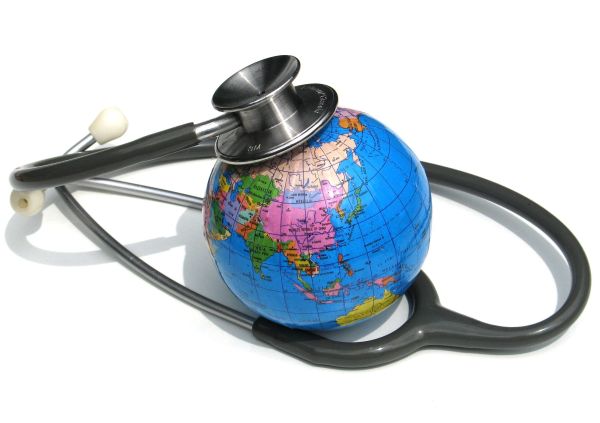- Big data and the future of medicine
 |
Big data and the future of medicine
|
A
recommendable article in Gigaom, "better medicine, brought to you by
big data" affects a topic that we have talked about before, the one for
me fascinating intersection between the analytical possibilities emerged
from the massive proliferation of data and health sciences.
The
article cites, without going into depth, eight areas where the adoption
of technologies related more or less directly to the idea of big data
could affect medical practice: genomics, the possibilities of the
business intelligence in the hands of the doctors, the semantic search
in files of enormous and distributed cases, the use of Hadoop in the
analysis of biological data , the use of supercomputers and artificial
intelligence software such as Watson to access information and answers
to questions in natural language, the use of diagnostic predictive
models through data mining, the idea of creating the professional
profile of the data scientist resident in hospitals, and the application
of crowdsourcing to scientific research through social networks and
voluntary sharing of data.
We're
in a moment of huge data profusion. The rate at which these data are
generated is excessive, and many of these data have potential uses and
consequences for medical research. We all carry on a mobile phone become
more and more in a real set of sensors capable of providing all kinds
of data about us, our lifestyle, our movements, the noise level around
us, the ambient temperature, our sleep rhythms, etc. No, that's not your
phone, it's your tracker, and the decision to obsess over your
potential in a world dominated by some great brother's apprentice versus
using that data for health improvement can be interesting. After all,
we already live episodes in which people decide, I do not know if the
whole "freely", share the information of your purchases with credit card
or the black box of your car with their respective health insurance
companies or car insurance in order to save part of the amount of the
policy (and that , as a result, pay in cash if you are going to have a
burger with extra cholesterol:-) The possibilities seem much more noble
if one decides to donate that data, suitably anonymized, to a biomedical
research team.
But
it's not just the motive. A progressively larger number of people opt
for some variety of the "quantified self" or "quantified I", which
automatically converts us to generators of information on our levels of
activity, distance traveled, exceeded level, calories consumed and
ingested approximate, consumption of water, weight, percentage of fat,
body mass index, or even variables such as heart rate, blood pressure,
blood glucose and others if you have the appropriate devices. For a few
weeks, every morning I climb to a scale that transmits via WiFi my
weight and percentage of fat to an application that processes and
stores. Would it be problematic to share that information for research
purposes if I ensure confidentiality? In my case, the answer is clearly
not. I would do it immediately if I can contribute to the progress of
science.
And
what about the permanent advancement in the field of "Personal
genomics"? The first time we mentioned 23andme on this page in March of
2008, his Test of sequencing from a sample of saliva able to determine
the geographical origin of your genetic markers and the propensity to
genetically predetermined diseases cost a thousand dollars. Now it costs
three hundred. Thousands of people around the world are opting for such
tests through companies like Appistry, Bina Technologies, DNAnexus or
NextBio, giving rise to a future in which the availability of genetic
information will affect us in no doubt in our development as individuals
and as communities.
Decidedly,
a different world. And a sign for those who want to look for
opportunities in the interface between medicine, data analytics or
product/service design in this area. Much of what many people today
consider science fiction has long since it is no longer. Its application
to an area considered part of the common good is only a matter of time
and the provision of appropriate guarantees. And it's definitely not
going to be long.
0 comentarios: